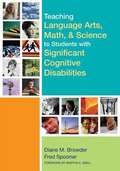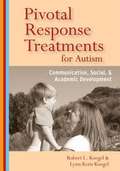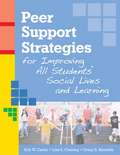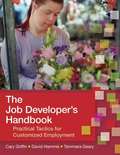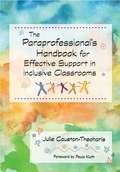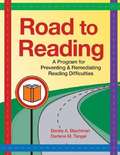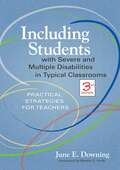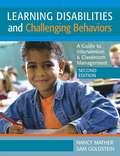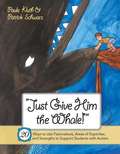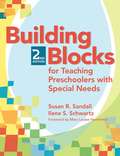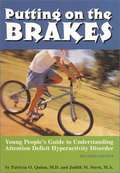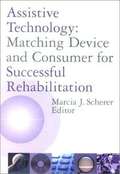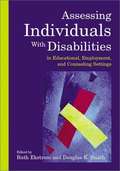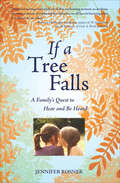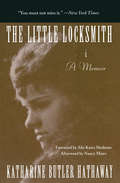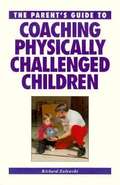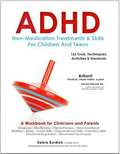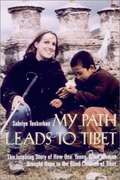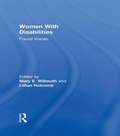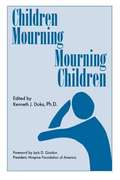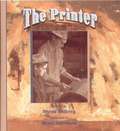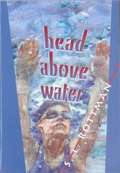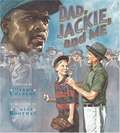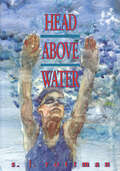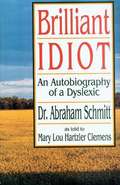- Table View
- List View
Teaching Language Arts, Math, and Science to Students With Significant Cognitive Disabilities
by Diane M. Browder Fred SpoonerUnder NCLB, students with severe disabilities are expected to make progress on state academic content standards in language arts, math, and science. But what material should educators teach from these three content areas, and how should they teach it? With this groundbreaking textbook, future educators will have the answers they need. The first major research-to-practice resource on this critical topic, this text goes beyond functional and access skills and shows educators how to make the general curriculum accessible to students of all ages with significant cognitive disabilities. Twenty-five of the best-known researchers in the field prepare educators to - adapt lessons in language arts, math, and science for students with disabilities - identify meaningful instructional content - create effective learning environments through instructional procedures such as peer tutoring, cooperative learning, and co-teaching - set appropriate expectations for student achievement - align instruction with state content standards and alternate assessment For each content area, future teachers will get a solid research foundation blended with teaching examples, guidelines, and helpful figures and tables. A timely textbook for pre-service educators--and a valuable reference for in-service teachers seeking guidance--this important resource will raise expectations for students with disabilities and ensure their progress in key academic areas. Learn how to teach - Language Arts. Move beyond sight-word recognition and teach the literacy components identified by the National Reading Panel - Math. Help students learn higher-level math concepts such as problem solving, reasoning, connections, and representations, as well as functional skills - Science.
Pivotal Response Treatment For Autism: Communication, Social, And Academic Development
by Robert L. Koegel Lynn Kern KoegelDiscover how to use natural learning opportunities to target and modify key behaviors in children with autism, leading to widespread positive effects on communication, behavior, and social skills. It's all possible with the innovative, widely used Pivotal Response Treatment (PRT), an empirically supported treatment for autism recognized by the National Professional Development Center on Autism Spectrum Disorders and the National Standards Project. <p><p> Because PRT works with each child's natural motivations and stresses functional communication over rote learning, this comprehensive model helps children develop skills they can really use. With this timely resource, educators and therapists will support children with autism as they enjoy more positive interactions, more effective communication, and higher academic achievement in natural, inclusive settings.
Peer Support Strategies For Improving All Students' Social Lives And Learning
by Erik W. Carter Lisa S. Cushing Craig H. KennedyPeer supports really work: they're a great, efficient way to help all students learn, make the most of teacher/ paraprofessional time, and increase the achievement level of challenging students. This is the concise, practical guide every middle and high school needs to implement peer support strategies--including cooperative learning and peer tutoring--to benefit students with moderate to severe disabilities and their peers. With this reader-friendly, step-by-step planning guide from the foremost authorities on peer supports, educators, paraprofessionals, and other school staff will discover how peer supports are a "two-way street," boosting the academic outcomes, social skills, and self-esteem of students with disabilities and the peers who support them determine which students might benefit most from peer supports recruit and match the students most likely to form mutually beneficial relationships develop effective support plans that promote access to the general curriculum work peer supports into IEP goals to meet state and national academic standards give students the training and guidance they need to approach their support roles with confidence and enthusiasm clarify the responsibilities of everyone involved in a peer support system: students, general and special educators, paraprofessionals and other school staff provide peers with constructive ongoing feedback extend peer supports to school activities and extracurricular events evaluate the social and academic impact of peer support arrangements A complete, start-to-finish guide to peer supports, this book is packed with photocopiable planning, implementation, and evaluation tools; evidence-based strategies; and vignettes that illustrate successful peer supports. With this must-have book on one of the hottest topics in inclusive education, educators and paraprofessionals will create schools where all students--with and without disabilities--help each other reach their academic goals, make new friends, and live full and meaningful lives.
The Job Developer's Handbook: Practical Tactics for Customized Employment
by Cary Griffin David Hammis Tammara Geary<p>One of the most practical employment books available, this forward-thinking guide walks employment specialists step by step through customized job development for people with disabilities, revealing the best ways to build a satisfying, meaningful job around a person's preferences, skills, and goals. Internationally known for their innovative, proactive job development strategies, the authors motivate readers to expand the way they think about employment opportunities and develop creative solutions. <p>Readers will get fresh, proven tips and ideas for every aspect of job development for youth and adults with significant support needs: <p> <li>discovering who the person is and what he or she really wants <li>ensuring goodness of fit between employer and employee <li>finding—or creating—"hidden jobs" in smaller companies <li>empowering people through resource ownership (investing in resources that employers need) <li>skillfully negotiating job duties while managing conflicts that might arise <li>creatively maximizing benefits using social security work incentives <li>encouraging family support while respecting the individual as an adult</li> <p> <p>To make each part of job development easier, the book arms readers with practical content they can really use: easy-to-follow, step-by-step guidelines; checklists of critical questions to answer; success stories in both urban and rural settings; and sample scenarios, dialogues, and interview questions. <p>Equally useful to veteran professionals and those just starting out, this compelling guidebook breathes new life into the job development process and helps readers imagine a wider world of employment opportunities for people with disabilities.</p>
The Paraprofessional's Handbook For Effective Support In Inclusive Classrooms
by Julie Causton-TheoharisWhat does a great paraprofessional need to know and do? Find out in this handy survival guide, equally useful for the brand-new paraprofessional or the 20-year classroom veteran. Packed with friendly guidance, practical tips, and relatable first-person stories, this book reveals the best ways to provide effective, respectful services to students in inclusive classrooms. Julie Causton-Theoharis, a teacher, professor, and educational consultant with more than 10 years of experience as a paraprofessional instructor, knows exactly how to help readers stop feeling overwhelmed so they can start making a difference. She answers all the urgent questions paraprofessionals have as they navigate their complex job in the inclusive classroom, showing readers how to: provide skillful and subtle support to students while encouraging their independence resolve challenging behavior in gentle and positive ways find students' strengths and match support practices to them fade their support make informed decisions about content-specific accommodations, modifications, and adaptations presume competence and keep expectations high facilitate peer supports and friendships partner with teachers, SLPs, psychologists, families, and other members of the educational team relieve their own stress and avoid burnout To help them master the daily ups and downs of the inclusive classroom, paraprofessionals will get ready-to-use practical content: tips for supporting students with specific disabilities, helpful question-and-answer sections, examples of successful problem-solving, a quick-guide to acronyms in education, easy ideas for improving teamwork, and more. The essential guide for every paraprofessional and a must-have for the educators and other professionals who support them this empowering book takes the guesswork out of a critical classroom role and helps students with disabilities reach their full potential.
Road to Reading: A Program for Preventing and Remediating Reading Difficulties
by Benita A. Blachman Darlene M. TangelRoad to Reading provides a framework for providing both early intervention to prevent reading difficulties and remedial instruction for students who are struggling to learn to read.
Including Students with Severe and Multiple Disabilities in Typical Classrooms: Practical Strategies for Teachers
by June E. Downing Martha E. SnellThe bestselling resource from the most trusted name in special education gets a top-to-bottom update in this new third edition. Revised to reflect the realities of today's K-12 classrooms, this book gives teachers all the latest research-based, practical strategies for fully including students with sensory impairments and cognitive and physical disabilities.
Learning Disabilities and Challenging Behaviors: A Guide to Intervention and Classroom Management (Second Edition)
by Nancy Mather Sam GoldsteinTwo reasons educators want to implement this book's Building Blocks model in their classroom: They'll have an innovative framework to help them understand the reasons why students in K-12 struggle. They'll have the proven strategies to help students learn. The Building Blocks model is practical, supported by research, and easy to implement. It identifies ten areas important to school success (the building blocks), divided into three levels: the foundational level includes attention and impulse control, emotion and behavior, self-esteem, and learning environment blocks the symbolic processing and memory level contains the visual, auditory, and motor skills blocks the conceptual level comprises using strategies and thinking with language and images A detailed questionnaire for each block helps identify a student's strengths and limitations, cultivate their strengths, address the weaker areas, and develop appropriate accommodations and instructional interventions. Each chapter contains proven teacher strategies to give educators direct information to meet students' individual needs. Once educators understand the causes of students' classroom challenges, educators can design individualized and effective interventions.
Just Give Him the Whale!: 20 Ways to Use Fascinations, Areas of Expertise, and Strengths to Support Students with Autism
by Paula Kluth Patrick SchwarzWhen learners with autism have deep, consuming fascinations--trains, triangles, basketballs, whales--teachers often wonder what to do. This concise, highly practical guidebook gives educators across grade levels a powerful new way to think about students' "obsessions": as positive teaching tools that calm, motivate, and improve learning. Written by top autism experts and nationally renowned speakers Paula Kluth and Patrick Schwarz, this guide is brimming with easy tips and strategies for folding students' special interests, strengths, and areas of expertise into classroom lessons and routines. Teachers will discover how making the most of fascinations can help their students learn standards-based academic content boost literacy learning and mathematics skills develop social connections expand communication skills minimize anxiety and much more"Just Give Him the Whale" is packed from start to finish with unforgettable stories based on the authors' experience, firsthand perspectives from people with autism themselves, research-based recommendations that are easy to use right away, and sample forms teachers can adapt for use in their own classrooms. An enjoyable read with an eye-opening message, this short book will have a long-lasting impact on teachers' understanding of autism--and on their students' social and academic success.
Building Blocks For Teaching Preschoolers With Special Needs (Second Edition)
by Susan R. Sandall Ilene S. Schwartz Gail E. Joseph Eva M. Horn Samuel L. Odom Mary Louise HemmeterUpdated for today's educators--especially those new to inclusion--the second edition of this bestselling guide is the lifeline preschool teachers need to fully include children with disabilities in their classrooms. Easy to use with any existing curriculum, including Creative Curriculum and HighScope, Building Blocks gives educators three types of practical, research-based inclusion strategies that promote progress in critical areas like behavior, emergent literacy, and peer relationships. A must for professional development, this revised edition helps teachers thrive in the era of accountability with NEW material that reflects the six years of changes in early education since the first edition. Teachers will discover how the Building Blocks approach aligns with OSEP outcomes to help teachers meet the federal requirements for special education learn everything they need to know about evidence-based practice and how to apply it in their classrooms. Through clear and instructive vignettes woven throughout the book, teachers will also meet four young children from diverse backgrounds and learn from their teachers' examples of successful interventions. A perfect training tool for teachers and an ideal textbook for college and university courses, this revised bestseller will help today's preschool educators start all their students on the road to lasting school success. Promote inclusion and improve child outcomes through curriculum modifications that allow all children to participate embedded learning opportunities used in typical classroom activities child-focused instructional strategies that help students with individual learning objectives
Putting on the Brakes (Revised Edition): Young People's Guide to Understanding Attention Deficit Hyperactivity Disorder
by Patricia O. Quinn Judith M. SternExplains what attention deficit disorder is and how to treat it, discussing the cognitive and emotional aspects, what the medication options are, how to maintain positive relations with friends, and how to do well at school.
Assistive Technology: Matching Device and Consumer for Successful Rehabilitation
by Marcia J. SchererAn exploration of the ways in which psychologists and other helping professionals can collaborate with users of assistive technology to help them get the most out of these devices.
Assessing Individuals with Disabilities in Educational, Employment, and Counseling Settings
by Ruth Ekstrom Douglas SmithThe book is divided into six parts. Part I covers legal, policy, and psychometric issues affecting all types of assessment. Part II covers testing accommodations, documentation, and score reporting. These two sections, as well as Part VI on additional sources of information, should be of interest to all assessment professionals. The remaining three parts focus on specific types of assessment, covering the assessment of people with disabilities in clinical and counseling settings, educational settings, and assessment for employment, certification, and licensing. (PsycINFO Database Record (c) 2004 APA, all rights reserved).
If a Tree Falls: A Family's Quest to Hear and Be Heard
by Jennifer RosnerA revealing memoir of a family and a &“wrenching journey into deafness from the standpoint of a mother, a wife, a daughter, a philosopher, and a Jew&” (Ilan Stavans, author of On Borrowed Words: A Memoir of Language). When her daughters were born deaf, Jennifer Rosner was stunned. Then she discovered a hidden history of deafness in her family, going back generations to the Jewish enclaves of Eastern Europe. Traveling back in time in her mind, she imagined her silent relatives, who showed surprising creativity in dealing with a world that preferred to ignore them. Here, in a &“gentle meditation on sound and silence, love and family&” Rosner shares her journey into the modern world of deafness, and the controversial decisions she and her husband made about hearing aids, cochlear implants and sign language (Publishers Weekly). Punctuated by memories of being unheard, Rosner&’s imaginative odyssey of dealing with her daughters&’ deafness is at its heart a story of whether she—a mother with perfect hearing—can ever truly hear her children.
The Little Locksmith: A Memoir (Physically Handicapped In Society Ser.)
by Katharine Butler HathawayThis early 20th century memoir of a woman&’s faith in the face of debilitating disease is a &“remarkably un-self-pitying book remains poignant and truthful&” (Publishers Weekly). &“You must not miss it . . . It is the kind of book that cannot come into being without great living and great suffering and a rare spirit behind it.&” —The New York Times In 1895, a specialist straps five-year-old Katharine Hathaway, then suffering from spinal tuberculosis, to a board with halters and pulleys in a failed attempt to prevent her from becoming a &“hunchback&” like the &“little locksmith&” who does odd jobs at her family&’s home. Forced to endure her confinement for ten years, Katharine remains immobile until age fifteen, only to find that none of it has prevented her from developing a deformity of her own. The Little Locksmith charts Katharine&’s struggle to transcend physical limitations and embrace her life, her body, and herself. Her spirit and courage prevail as she expands her world far beyond the boundaries prescribed by her family and society: she attends Radcliffe College, forms deep friendships, begins to write, and in 1921, purchases a house of her own that she fashions into a space for guests, lovers, and artists. Revealing and inspirational, The Little Locksmith stands as a testimony to Katharine&’s aspirations and desires—for independence, love, and the pursuit of her art. &“A powerful revelation of spiritual truth&” —The Boston Globe &“Katharine Butler Hathaway . . . was the kind of heroine whose deeds are rarely chronicled . . . [She took] a life which fate had cast in the mold of a frightful tragedy and redesign[ed] it into a quiet, modest work of art.&” —The New Yorker
The Parents Guide to Coaching Physically Challenged Children
by Richard ZulewskiHandbooks in The Better Way Coaching Kids series serve as the perfect step-by-step introductory primers for parents and coaches. Written in an easy, conversational style, these books cover all the basic skill-building techniques, rules of the games, proper equipment and first aid. These guides focus on team spirit, the importance of fair play and overall fun. Special attention is paid to developing a child's confidence and self-esteem, -- all important keys to success.
My Path Leads to Tibet: The Inspiring Story of How One Young Blind Woman Brought Hope to the Blind Children of Tibet
by Sabriye TenberkenDefying everyone's advice, armed only with her rudimentary knowledge of Chinese and Tibetan, Sabriye Tenberken set out to do something about the appalling condition of the Tibetan blind, who she learned had been abandoned by society and left to die. Traveling on horseback throughout the country, she sought them out, devised a Braille alphabet in Tibetan, equipped her charges with canes for the first time, and set up a school for the blind. Her efforts were crowned with such success that hundreds of young blind Tibetans, instilled with a newfound pride and an education, have now become self-supporting. A tale that will leave no reader unmoved, it demonstrates anew the power of the positive spirit to overcome the most daunting odds.
Women with Disabilities: Found Voices
by Mary E. Willmuth Lillian HolcombBoth women with disabilities and women professionals who work with persons with disabilities address many concerns about life with a disability and issues related to disability and psychotherapy. Annotation c. by Book News, Inc., Portland, Or.
Children Mourning, Mourning Children
by Kenneth J. DokaFrom the book: We [Hospice Foundation]aimed to produce something between a popular self-help book and an academic tome, a readable book directed primarily at caregivers, but which might also benefit a family dealing with a pediatric-related problem of grief and bereavement. We hope that Children Mourning, Mourning Children will find an audience beyond those who receive it at the teleconference.. We look forward to its continued use in training, counselling, and study." This book includes information to guide adults in answering both the questions of terminally ill children and those who know them. A useful resource for families, caregivers, and social service professionals.
The Printer
by Myron UhlbergA young boy tells the story of his deaf father who loved working as a printer for a major newspaper but was saddened by the fact that his hearing coworkers ignored him because he couldn't talk. Picture descriptions added.
Head Above Water
by S. L. RottmanFor a 16-year-old high school junior, Skye has a lot on her plate. With her mother holding down two jobs to support the family since Skye's father left years ago, Skye is given the primary responsibility of caring for her older brother Sunny who has Down syndrome. Skye's relationship with her brother constantly challenges and sometimes frustrates her. All the while, Skye is trying to maintain her 3.5 GPA, and she is training intensely to qualify for the state championships as a member of the high school swim team, in hopes of earning a college scholarship. She is also struggling to come to terms with her feelings for her boyfriend, who wants more from her than she is ready to give. As Skye attempts to face these challenges, she grows up and gains new perspective into what is truly important in her life.
Dad, Jackie, and Me
by Myron UhlbergJackie Robinson is the new first baseman for the Brooklyn Dodgers--and the first black player in Major League Baseball. A young boy shares the excitement of Robinson's rookie season with his deaf father. <P><P> Winner of the Schneider Family Book Award
Head Above Water
by S.L. RottmanFor a sixteen-year-old high school junior, Skye has a lot on her plate. As she faces the challenges of caring for her disabled brother and making time for school, swimming, and a boyfriend, Skye begins to gain a new perspective into what is truly important in her life.With her mother holding down two jobs to support the family since Skye's father left years ago, Skye is given the primary responsibility of caring for her older brother Sunny, who has Down syndrome.Skye's relationship with her brother constantly challenges and sometimes frustrates her. All the while, Skye is trying to maintain her GPA, and she is training intensely to qualify for the state championships as a member of her high school swim team, in hopes of earning a college scholarship. She is also struggling to come to terms with her feelings for her boyfriend, who wants more from her than she is ready to give.Award-winning author S. L. Rottman has crafted an absorbing young adult novel that powerfully depicts the emotional turbulence of teenage life and the difficulty of negotiating complex human relationships.
Brilliant Idiot: An Autobiography of a Dyslexic
by Abraham Schmitt Mary Lou Hartzler ClemensThis book chronicles one man's battle to earn respect and an education, only to discover in mid-life that his severe mental "fog" was a serious learning disability.
